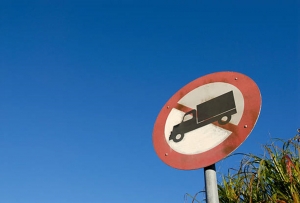HGV Registrations Stabilise as Zero Emission Market Share Increases
New heavy goods vehicle (HGV) registrations have fallen for the first time in two years, with a -3.9% decline in Q1 2024, according to the Society of Motor Manufacturers and Traders (SMMT). Despite this, 11,068 new HGVs were registered between January and March, only 449 fewer than the same period in 2023, which had the strongest start to a year since the pandemic.
Demand for tractor units, the largest market sector, fell by -16.7%, and tipper uptake declined by -6.3%. However, curtainsiders saw a 23.1% increase, flat lorries rose by 21.6%, and box vans grew by 20.6%. Regional uptake varied, with the Southwest seeing the largest growth at 11.8% with 994 new HGVs. East Anglia had the largest decline, down -26.4% to 457 units. The Southeast remained the largest investor in new heavy vehicles, with 2,351 registrations, despite a -2.7% decline.
Zero emission vehicle (ZEV) registrations reached 0.5% of overall HGV registrations, up from 0.3% the previous year, marking a 56.3% increase in volume. Growth in ZEV uptake remains limited due to low operator confidence and a cumbersome grant system, which results in fewer than half of all ZEV models being eligible. Additionally, the UK has a shortage of dedicated HGV charging points, with only one truck-specific charging station located at the M61 southbound service station. This lack of infrastructure hampers longer-distance operators from adopting greener vehicles.
Reforming the grant system and implementing a national infrastructure plan would facilitate the switch to zero emission HGVs, potentially reducing CO2 emissions by around 19 million tonnes annually.
Nottingham Firm Launches Initiative to Lead Supply Chain Sustainability
Nottingham-based logistics firm Mitchells of Mansfield, part of Palletways UK, has launched the Carbon Co-op initiative to advance its decarbonisation efforts.
Mitchells of Mansfield is part of Palletways UK’s network of over 120 depots, leveraging shared resources to deliver palletised freight efficiently. Palletways Group, known for its IT and operational systems, spans over 450 depots and 20 hubs, providing services across 24 European countries, including the UK.
Partnering with climate action platform Ecologi, the Carbon Co-op allows businesses to offset consignment emissions by paying a small fee based on travel distance. These fees support global climate projects aligned with UN Sustainable Development Goals. Businesses in the Carbon Co-op can track their impact through Ecologi's “virtual forest”, monitoring CO2 avoided, and trees planted.
Managing Director of Mitchells of Mansfield, Richard Montgomery highlighted the initiative's role in helping customers make sustainable choices effortlessly. The firm also runs a monthly Carbon Free Day, offsetting all customers' CO2 emissions at no extra cost. Aiming to become climate positive by 2027, Mitchells of Mansfield has funded 2,000 trees and avoided 532.5 tons of CO2 - equivalent to 409 long-haul flights or 1,321,133 miles driven. Inspired by Palletways UK's efforts, they track progress on Ecologi's virtual forest.
Permanent Ban on HGVs in North Lincolnshire Villages
A weight limit zone to prevent heavy goods vehicles (HGVs) from passing through several small villages in North Lincolnshire is now permanent. Since 2022, a trial has restricted vehicles over 7.5 tonnes from traveling through one council ward.
The initiative was prompted by concerns from the Ulceby Road Safety Group, Parish Council, and Ferry ward councillors. Stuart Smith of the Ulceby Road Safety Group celebrated the decision as "absolutely fantastic" and long overdue. Mr. Hannigan told the Local Democracy Reporting Service: “It’s been successful beyond our expectations. It was a long campaign to achieve this, but we succeeded.”
The weight-restricted zone in Ferry ward includes Ulceby, Kirmington, Thornton Curtis, Burnham, Croxton, and Wootton. Ferry ward councillor Richard Hannigan praised the trial, noting it had "exceeded expectations" and improved residents' quality of life. Based on feedback from Humberside Police, vehicles exceeding the weight limit will be allowed through only if there are diversion routes, road closures, or roadworks.
The Road Haulage Association (RHA), representing HGV-operating companies, opposed the traffic order. The RHA argued that alternative routes would be more costly and environmentally harmful due to longer travel times.








